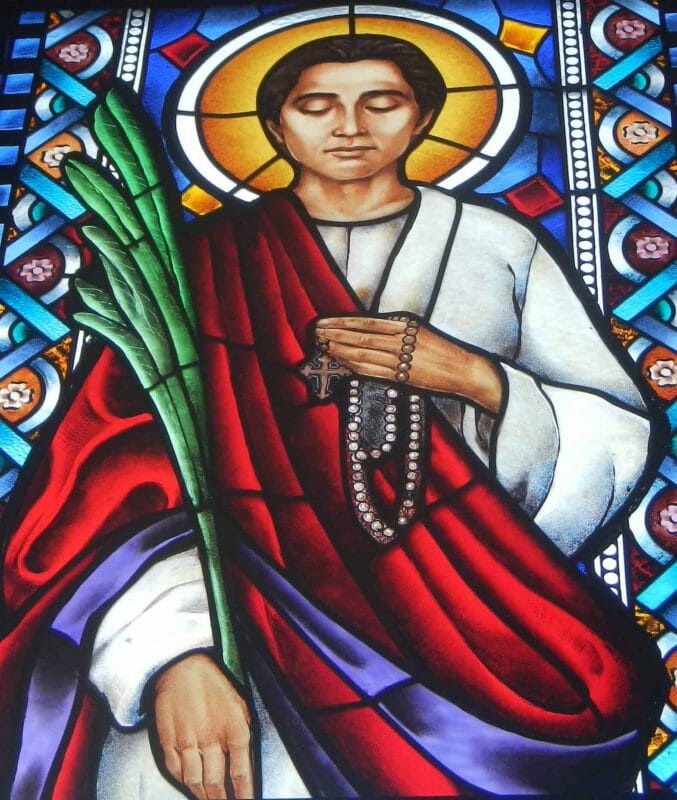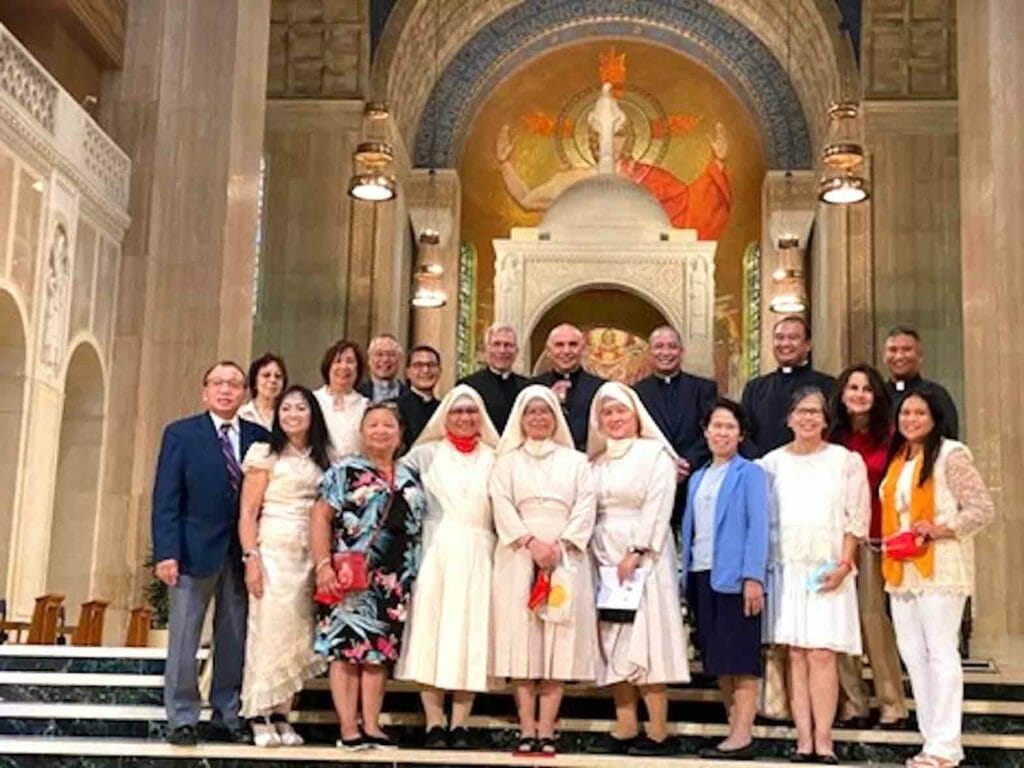St. Lorenzo Ruiz: A saint for post-modern day Christian witnessing

St. Lorenzo Ruiz was canonized on October 28, 1987 at the Vatican as the first Filipino saint.
Lorenzo Ruiz died as a martyr on September 29, 1637, after two days of torture at Nishizaka Hill in Nagasaki, Japan. He was 42. On February 18, 1981, Pope John Paul II beatified him in Manila, the first person to be beatified outside the Vatican. Canonized on October 28, 1987 at the Vatican as the first Filipino saint, he is recognized today as the patron saint of Filipino youth, the Philippines, people working overseas, and altar servers.
Born in Binondo, Manila in 1594, Lorenzo was a married Chinese-Filipino layman with three children. Baptized and educated by Spanish Dominican missionaries, he earned the title of escribano (scrivener) and was employed by the Dominicans as their curator and clerk of trust. Impressed with his faith, loving family life, and fidelity to his work, the Dominican Fathers wrote praiseful testimony about Lorenzo’s character, love for God, kindness, and diligent constancy in whatever he did.
When Spanish colonial authorities targeted him as a scapegoat for murder, he escaped from the Philippines to avoid arrest and possible execution. Leaving his family behind, he joined Dominican missionaries on their ocean voyage to Japan. Little did he know that the threats he was trying to escape from in the Philippines were nothing compared with the inventive cruelty and barbaric death that awaited him in Japan.
Thus, did Lorenzo’s life trajectory unfold and end. Going by St. Lorenzo’s life of faith, we can say that life is indeed invaluable. It must be lived virtuously, and, if needed, given up only for a higher purpose. In this light, we see how, in a providential twist of events, Lorenzo fled the penalty of death after being falsely accused of homicide in a Christian country, only to face a rather ironic death, witnessing to Christ in a country hostile to his faith.
Did he seek sainthood through martyrdom? Not by any means. He lived a simple life and the fact that he was a fugitive from the clutches of uncertain human justice was a sign that he just loved his life.

Filipino Catholics in the Washington, D.C., area made a pilgrimage to the Basilica of the National Shrine of the Immaculate Conception on Sept. 18, 2021 to commemorate 500 years of Christianity in the Philippines and the Feast of St. Lorenzo Ruiz, the first Filipino martyr and saint. Photo by Mark Zimmermann, Catholic Standard.
So, if a martyr like St. Lorenzo is set up for universal emulation, how can Catholics, especially the youth of our modern society, who live in circumstances quite far removed from those experienced by St. Lorenzo, imitate him?
What does it mean to be a martyr today?
The Catholic Church defines a martyr as a deeply committed Christian who is persecuted and suffers the pain of death for refusing to renounce faith in the Son of God. Reflecting on post-modern day Christian martyrdom, St. Lorenzo’s martyrdom centuries ago begs the question of whether a Christian believer can truly witness to the Christian faith, even under pain of death in today’s ideologically pluralistic world.
Recent media telecasts have shown that St. Lorenzo’s martyrdom is being replicated all over the world where Christians are being killed for refusing to renounce their Christian faith. Although today’s western society seems relatively tolerant of Christianity, there are certain unspoken sociological, ideological, and political threats one faces in living the Christian faith —threats that are real enough to make martyrdom a relevant reality, although, perhaps, in a different sense. Today’s Christian martyrdom may not generally demand an actual sacrifice by death, but it still requires the same level of deep commitment to Christ as demonstrated by Saint Lorenzo in his martyrdom.
The calling to be Martyrs for the faith
This commitment means embracing Christian values and principles of living that may be opposed to current social norms and values. It calls us to live a life of faith and discipline, in imitation of the life of Christ. As St. Lorenzo’s martyrdom reminds us, the temptations to deny the faith are always present, whether manifest in plain or subtle ways. In such a climate of relativism and secularism, publicly professing our Christian faith can sometimes put us at risk of being branded as a religious bigot. Thus, the fear of being, perhaps labeled and ostracized by popular society can jeopardize our Christian faith.
Indeed, we are called to be martyrs for the faith, not just in one single final act of supreme sacrifice when offered as a privilege, but in the daily exercise of dying to self, of giving oneself to the service of others out of love, of forgiving when this is more difficult to do. To be a Christian is to re-enact in our daily life the paschal mystery of Christ’s life, death, and resurrection.
St. Lorenzo Ruiz died once for God and would have willingly died again if he had a thousand lives to give. His daily quiet exercise of dying to self in the ordinariness of his life and the diligent performance of his duties culminated in a selfless act of the highest witness to the faith: his martyrdom at the hands of nonbelievers.
May God grant us the grace quietly to die a thousand deaths for Him in faith and love today and every day of our lives.
Rosemarie A. Ong of Washington, D.C. is the Human Resources manager of Catholic Charities of the Archdiocese of Washington. She holds a doctorate in education from George Washington University’s Executive Leadership Program, and a Masters in Human Resources Management from The Catholic University of America.

